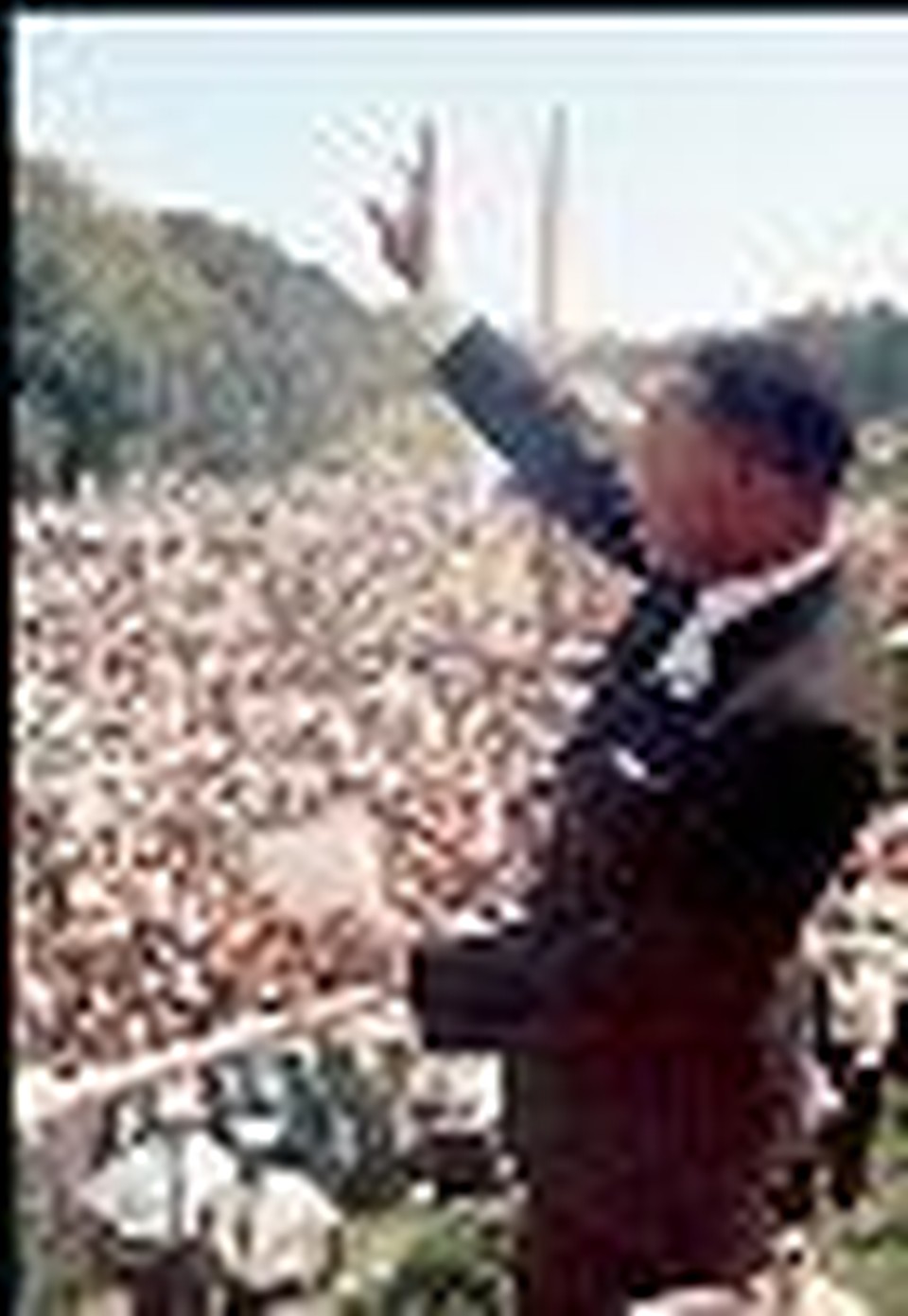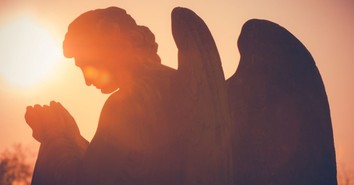Author Says Martin Luther King, Jr's Dream is 'Undone'

In its early days, the civil rights movement in the South defined its mission primarily as an attempt to reorganize the social and political order through the radical idea of Christian love, specifically through the practice of nonviolence.
Martin Luther King, Jr. and other leaders consciously emphasized the Judeo-Christian inspiration for their convictions, stating that the ultimate goal of their efforts was not simply to achieve social justice, but to create, in King's words, a "beloved community" on earth. By the end of the 1960s, that vision of the beloved community had come apart.
In his book, The Beloved Community, author Charles Marsh traces this path of disintegration and disillusionment, but also a parallel, lesser-known history, in which religious leaders continued to pursue this vision over the past 40 years. Following is a short conversation with Marsh, provided by Basic Books.
Where does the term "beloved community" come from? What does it mean?
It comes from Dr. King, from the final days of the Montgomery Bus Boycott and an amazing but little known speech he gave on nonviolence and social change. The United States Supreme Court had just a few weeks earlier given the black protesters a victory in their boycott of segregated buses; and on this joyful evening in December of 1956, King paused to reflect on the meaning of the sacrifices and convictions that had carried them through the year. King said that while a boycott had been necessary to challenge unjust laws, it did not represent the goal of the movement. "The end is reconciliation," he said, "the end is redemption, the end is the creation of the beloved community."
That line just pounded me the first time I read it. For King, the beloved community was tied to the Christian doctrine of the Kingdom of God, and King believed that the movement was about making the Kingdom a reality on earth.
The beloved community gave the civil rights movement its unifying spiritual vision. But after 1964, the movement drifted away from the black church, and the vision splintered and fell into the hands of identity groups whose missions were no larger than concern for their own flourishing. Without a vision, the people perish, the Proverbs say. In a real way, race relations in this country remain frozen in this historical moment.
This sounds like a sad story.
Yes, it is disheartening. And the story didn't get any better with the dawning of a new decade. The Seventies began with America's invasion of Cambodia, the killing of student protesters at Kent State and Jackson State, and George Wallace urging his fellow southern governors to defy federal integration orders.
But there is a more hopeful story that emerges from the ruins of the movement, although it's one that has never been told-or at least not fully appreciated. This story reads as a kind of parallel history-though at times an overlapping one-to the familiar civil rights narrative. And it includes the intentional interracial experiments and social justice campaigns created throughout the South and nation in the past several decades, most of which are based in churches and communities of faith. These remarkable experiments in progressive Christians have pretty much gone under the radar.
You make some provocative remarks about the President's faith-based initiative. What surprised you most in your research of the current faith-based movement in the U.S.?
The biggest surprise was that the faith-based movement has radical roots in the civil rights movement and in many of its most creative experiments in community organizing. The man widely regarded as the founder of the movement, John Perkins, who directs a community ministry in Jackson, Mississippi, and who has been praised by several Republican presidents as a shining example of compassionate conservatism, is himself a pacifist, a supporter of federal reparations for slavery, a fan of Stokely Carmichael, a proponent of progressive taxation, a lifelong Democrat, and a confrontational community organizer.
The more I visited with the men and women who work in faith-based organizations, the more I became aware of the huge gap between the political use of these initiatives by law makers and the political dispositions of the organizers, which tend to be left-of-center, especially on the need for federal social spending. Frankly, I think this is one of the reasons we will probably hear a lot less about the faith-based initiative in the president's second term. It's a lot safer to talk about family values than combating poverty and economic injustice. But I'm still hoping we'll hear a lot more.
What was it like to grow up in the South during the Civil Rights movement? How did that influence your writing of The Beloved Community?
I grew up in Laurel, Mississippi, in the late sixties, and was part of the first integrated class in the state. When my family moved to Laurel in 1967, the town was drenched in violence. My dad was the pastor of the First Baptist Church, trying to make a name for himself as a successful young preacher. But this was the real season of Mississippi burning, and it was impossible to ignore the trouble in our town. The White Knights of the Ku Klux Klan worked out of a warehouse across from the Masonite plant and carried out terrorist attacks almost daily. And there weren't many local whites willing to take on the Klan. A young District Attorney named Charles Pickering was a rare exception. His testimony against Imperial Wizard Sam Bowers did much to mobilize white moderates like my father against the Klan. Pickering, you may recall, was President Bush's nominee for the Fifth Circuit Court and was called a racist by many liberal opponents of his appointment. Go figure.
After a period of despair and reevaluation, my dad found the courage to preach the sermon, "Amazing Grace for Every Race," and to embrace a new South. I wrote about this in a memoir called The Last Days: A Son's Story of Sin and Segregation at the Dawn of a New South.
As for me, well, the life of a minister's kid is intense and weird enough in normal times. Add to that the daily installments of terror and violence and you've got enough memories and hang-ups to last a lifetime. There's not much else you can do but write books and tell stories.

Originally published January 17, 2005.







